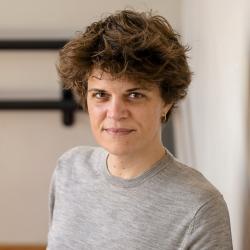Job Titles

Department of Archaeology
I am a psychiatrist with a PhD in cognitive science. Did my master at the Ecole Normale Supérieure (ENS PSL - Paris) on ADHD and mind-wandering. I continued with a PhD under joint supervision of the Université Libre de Bruxelles and the ENS in the field of inter-individual variability in flows of consciousness, which I defended in 2022. During my PhD the question of the evolutionary aspect of the variability of attention control and the parallels with other activities undermined by dopaminergic pathways such as foraging, sleeping patterns, novelty seeking became central became central in the development of my hypotheses and I started to interact with evolutionary anthropologists. I then had the opportunity to participate in fieldwork organised by anthropologists of the University of Zurich in Amazonian Bolivia, working with the Tsimane people on the methodological development of mental health studies in non-WEIRD (Western, Educated, Industrialised, Rich, and Democratic) societies.
Realising that this combination of fieldwork evolutionary and mental health studies fulfilled all my fundamental research interests, I secured a two-year grant from the Wiener-Anspach Foundation in order to work with Dr Chaudhary’s group at the McDonald’s Institute. This grant will allow me to test, in vivo with contemporary hunter-gatherer societies, the hypotheses I tried to test in vitro during my PhD.
My research focuses on the differences between the expression of ADHD traits in hunter-gatherer and WEIRD societies, and the potential advantage of these traits in daily life activities such as foraging, exploring, learning, risk-taking in quantitative terms. But I'm also interested in the subjective and social aspects of these traits, which are known to be heritable at around 75%, and more generally in the environmental conditions in which mental illnesses are expressed.
Peer-Reviewed Papers
Pre-print

Postal Address:
Department of Archaeology
Downing Street
CB2 3DZ Cambridge
Information provided by:



© 2024 University of Cambridge